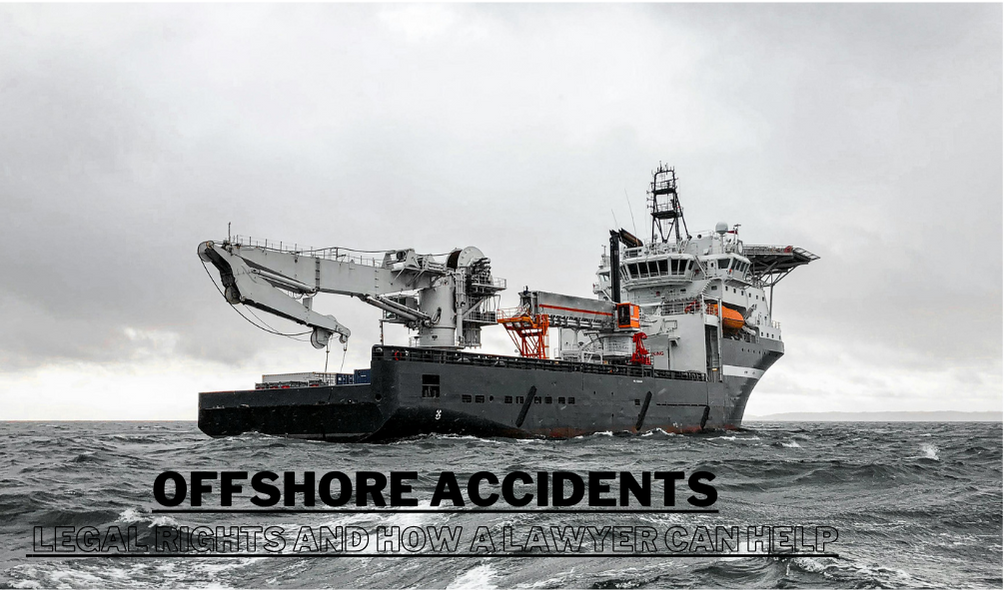The vastness of the open ocean offers opportunity and adventure, but it also comes with inherent risks. Offshore workers face some of the most dangerous working conditions in the world. From slip and falls on slippery decks to equipment malfunctions and fires, accidents on oil rigs, drilling platforms, and commercial vessels can be catastrophic.
If you’ve been injured in an offshore accident, understanding your legal rights and seeking the help of an experienced offshore accident lawyer is crucial. Here’s why:
A Different Legal Landscape:
Maritime law, a complex and specialized area distinct from traditional personal injury law, governs accidents on navigable waters. Laws like the Jones Act and the General Maritime Law (GML) provide unique protections for injured maritime workers. Understanding these nuances requires expertise.
Compensation for Injuries:
Offshore accidents can lead to severe injuries, extensive medical bills, lost wages, and long-term disability. A lawyer can help you navigate the complexities of filing a claim and ensure you receive fair compensation for all your damages.
The Jones Act Advantage:
The Jones Act provides significant benefits to seamen injured due to negligence on the part of their employer, the vessel owner, or a fellow crew member. Unlike typical workers’ compensation, the Jones Act allows you to sue your employer for negligence, potentially leading to higher damage awards.
Beyond Jones Act Claims:
Not all offshore workers qualify as “seamen” under the Jones Act. Even if you don’t qualify, a lawyer can explore other avenues for compensation, such as claims under GML or general negligence principles.
Wage and Hour Issues:
Maritime workers often work long, irregular hours, and may be entitled to overtime pay under federal law. A lawyer can ensure you’re paid properly for all the hours you work.
Contract Scrutiny:
Offshore employment contracts can be complex. A lawyer can review these agreements to ensure fair terms and protect your rights.
Accident Investigation and Evidence Gathering:
Offshore accident scenes can be difficult to preserve. A lawyer can act quickly to secure evidence, interview witnesses, and investigate the cause of the accident to build a strong case.
Negotiating with Insurance Companies:
Maritime insurance companies can be aggressive in denying or minimizing claims. A lawyer with experience negotiating with these entities can fight to protect your interests and ensure you receive a fair settlement.
Taking Your Case to Court:
If a fair settlement cannot be reached, a lawyer can prepare your case for trial, presenting compelling evidence and arguments to maximize your compensation.
Emotional and Psychological Support:
Offshore accidents can be traumatic, leaving lasting emotional and psychological scars. A lawyer can provide valuable support throughout the legal process, allowing you to focus on your recovery.
Finding the Right Offshore Accident Lawyer:
Look for an attorney with a proven track record of success in handling offshore accident cases. Experience in maritime law and a deep understanding of relevant legal principles are crucial. Consider the lawyer’s communication style, fees, and availability when making your decision.
Taking Action Now
Offshore accident claims often have strict time limits for filing. Don’t delay seeking legal counsel. The sooner you speak with a lawyer, the better your chances of securing a just outcome.
Moving Forward with Confidence
While an offshore accident can be life-altering, understanding your legal rights and having an experienced lawyer on your side can make a world of difference. An attorney can guide you through the legal process, fight for the compensation you deserve, and help you move forward with confidence.
